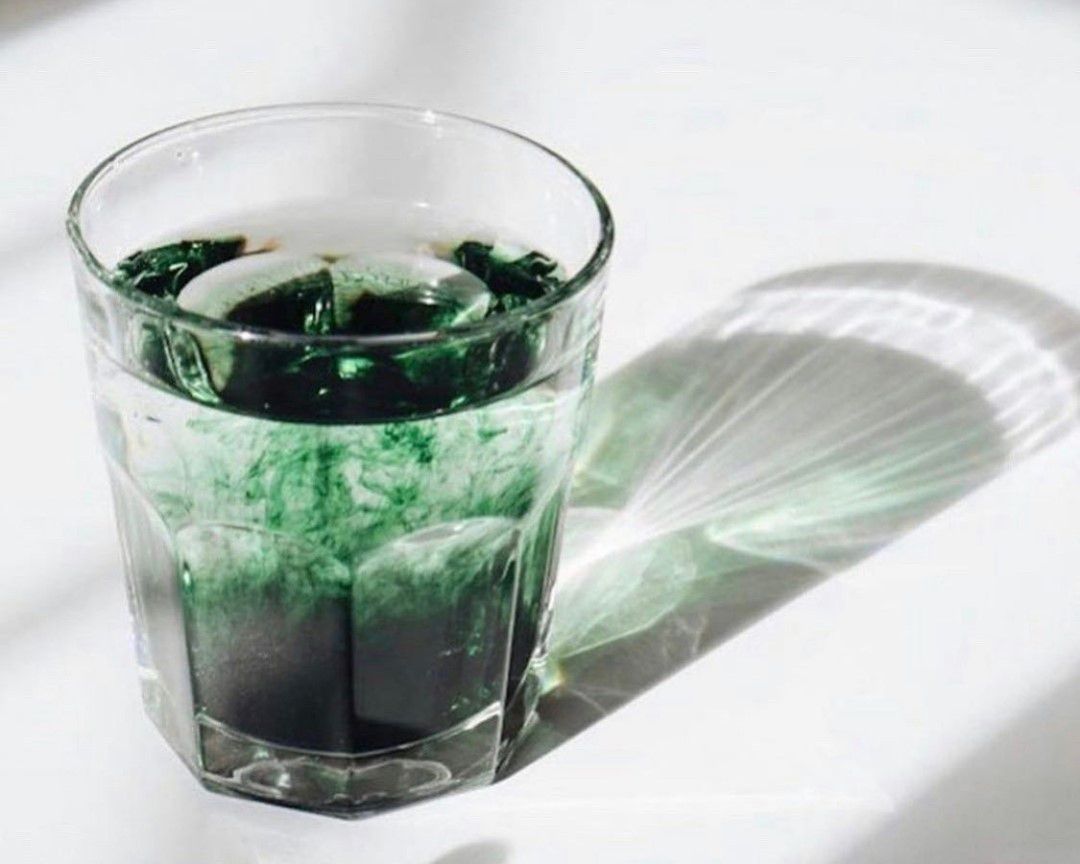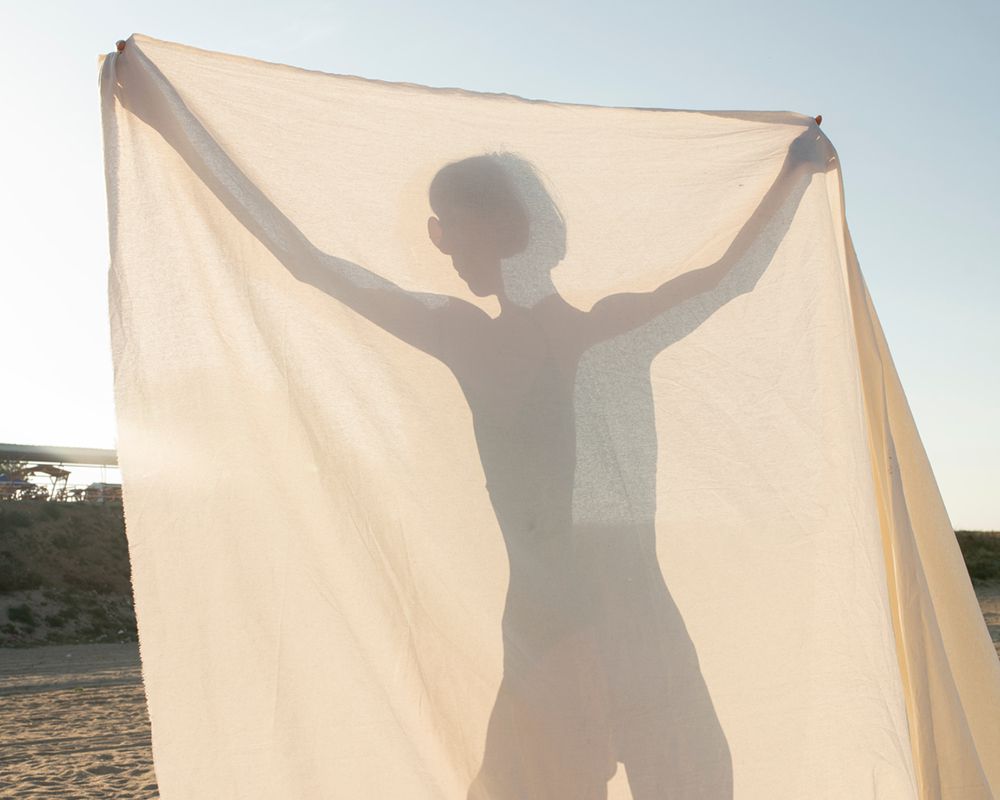Serious Question—Do I Need to Wear Sunscreen Indoors?

There are a few things most people know to be true: The earth is round, and sunscreen is a must. The latter is sometimes questioned though—especially during the colder, grayer months of the year, and on days when the sun is hiding. But, if there’s one thing cosmetic dermatologist Dr. Michele Green wants us to permanently commit to memory, it’s that the need for SPF is real, no matter the weather, season, or temperature.
“The sun is the number one cause of wrinkles, with dozens of studies documenting the impact,” she explains, noting that a lot of people may or may not wear sunscreen year-around—whether spending time inside or out—but it’s one of the most important things you can do for your skin. “It doesn’t matter what your skin tone or color is, wearing sunscreen year-round will prevent skin damage from UV rays, thus minimizing your risk of skin cancers and premature aging.” What’s more, Green points out that the sun’s rays can still pass-through on cloudy days, when it’s cold and raining, and even through windows, so it’s important not to skip out on SPF.
Of course, if you’re still not sold on the need for perpetual SPF, with Green’s help, ahead we’ve outlined why it’s very much necessary to wear sunscreen outside and inside.
Do You Need to Wear Sunscreen Indoors?
The short answer is yes. As Green mentioned, UV rays can pass through glass windows. Because of this, it’s important to wear SPF inside your home, as well as inside your car. In fact, the vast majority of UV hand aging occurs while driving, so applying an SPF-infused hand cream like the Supergoop! Hand Screen SPF 40, $14, is a great option for those looking to protect their skin and prevent early-onset fine lines and wrinkles.
But remember: It’s not just your hands that are at risk. Green says that you should apply SPF to all exposed areas of skin, especially the face, neck, and chest.
“Glass windows do filter out UVB rays however UVA rays can still penetrate through your windows which is harmful to your skin,” she explains. “UVA rays actually penetrate a deeper layer of skin and are therefore more damaging than UVB rays. In fact, UVA rays are the root cause of hyperpigmentation, skin cancer, and premature aging.” All this is to say, even if you plan to spend an entire day indoors, topping off your skincare routine with a final layer of SPF is a stellar, supremely necessary idea.
Does Sunscreen Protect Against Blue Light?
While not all sunscreens protect against blue light—aka the light emitted from screens (whether it be your phone, laptop, or TV)—those formulated with zinc oxide and/or titanium dioxide do. In fact, according to a clinical trial published in the British Journal of Dermatology, researchers found that sunscreens containing microfine titanium dioxide offered significantly higher protection against both UVA and blue light compared to the other SPFs in the trial.
Scratching your head at what titanium dioxide is? Both titanium dioxide and zinc oxide are minerals that make up physical sunscreens. As a refresher, physical sunscreens sit on the top of the skin, bouncing light off the surface to protect it from damaging penetration, whereas chemical sunscreens draw light inward while still offering protection by absorbing the rays.
Do You Need to Reapply When You're Indoors?
As a general rule of thumb, Johns Hopkins medical experts advise reapplying sunscreen every two hours. That said, if you’re indoors and away from windows, the need to reapply is less necessary. When you’re indoors, you’re less likely to be sweating or swimming, so you’re sunscreen is also less likely to be compromised after its initial application when you’re indoors. But let it be known, that doesn’t mean you should forego SPF altogether (or re-application) altogether.
When you apply sunscreen in the morning, a great way to touch-up throughout the day (without compromising your makeup) is to use a powdered mineral sunscreen. These formulas brush-on like setting powder, so there’s no excuse not to re-apply.
Best Sunscreens For Indoors
When choosing sunscreen, Green says to opt for a broad-spectrum sunscreen that has both UVA and UVB protection. “An SPF of 30 or more is recommended, however if you have a history of skin cancer, suffer from melasma, hyperpigmentation, or tend to burn quickly, you should consider an SPF of 65 or more.”
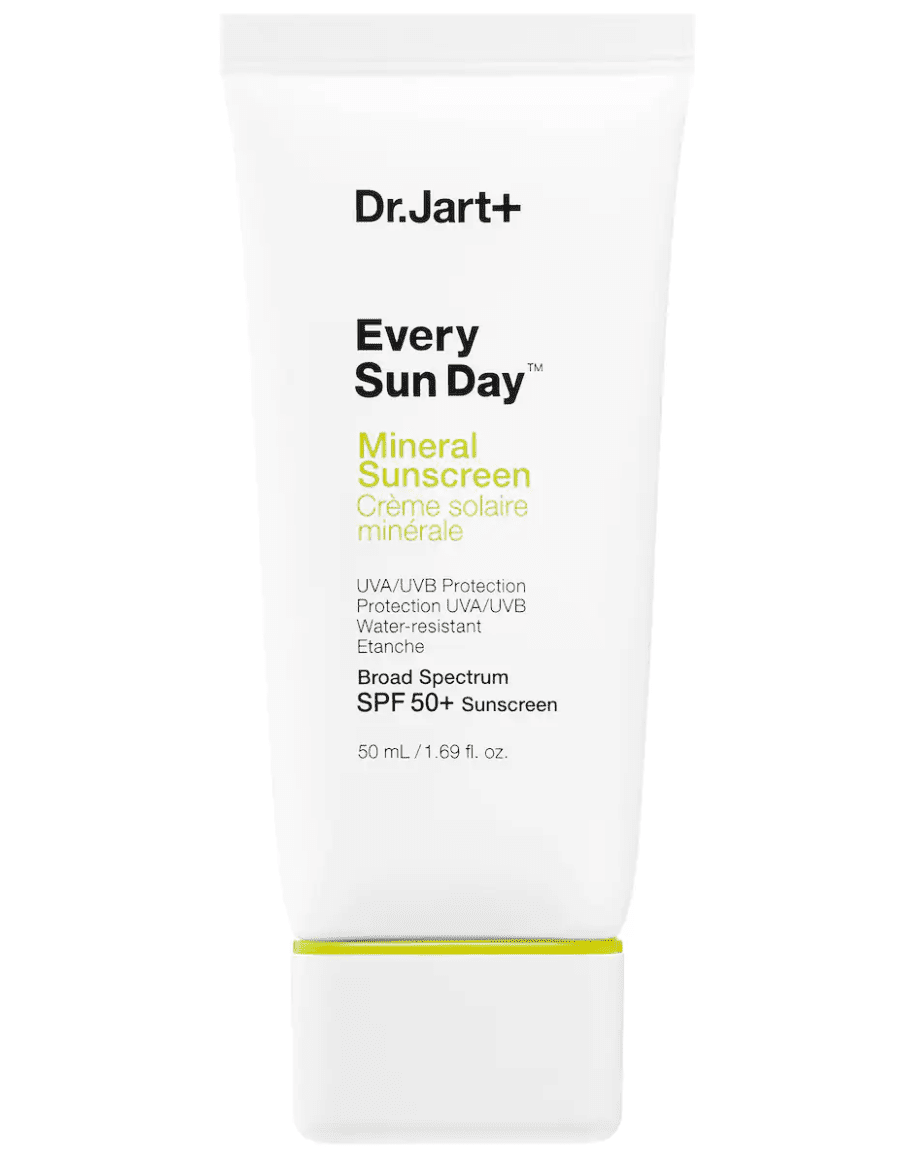
Dr. Jart+
Every Sun Day™ Mineral Sunscreen SPF 50+
$$39
This mineral sunscreen is an absolute dream for all skin types, though it’s particularly beneficial for those with oily and combination skin, as it features porous powder that helps mattify sebum for a less greasy-looking complexion. What’s more, where many mineral sunscreens tend to leave a white cast, this creamy formula blends easily and evenly into skin to provide zinc and titanium dioxide-infused protection. While it’s a great option for days spent indoors, thanks to its waterproof nature, it’s a gem for outdoor adventures too.
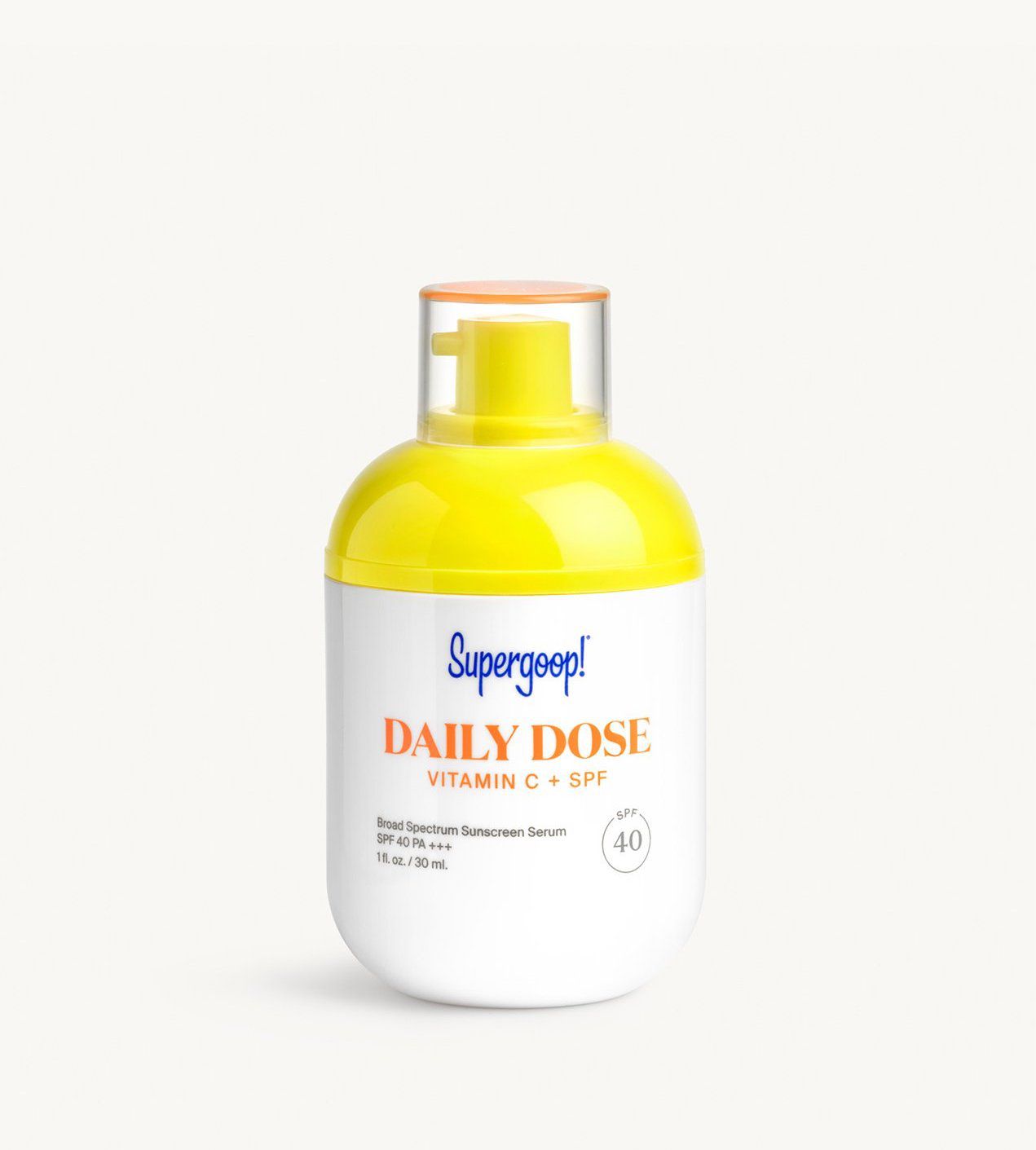
Supergoop!
Daily Dose Vitamin C + SPF 40 Sunscreen Serum PA+++
$46
Say hello to one of the most anticipated products of the year. This protective SPF not only shields skin from UV and blue light damage but from free radicals as a whole. With vitamin C, niacinamide, and Kakadu plum extract at its forefront, this clean sunscreen works wonders for delivering healthy, hydrated, protected, radiant skin with a single pump, making it unlike any other on the market.
Supergoop's New Vitamin C SPF Serum Made My Skin Shine Like a Lightbulb
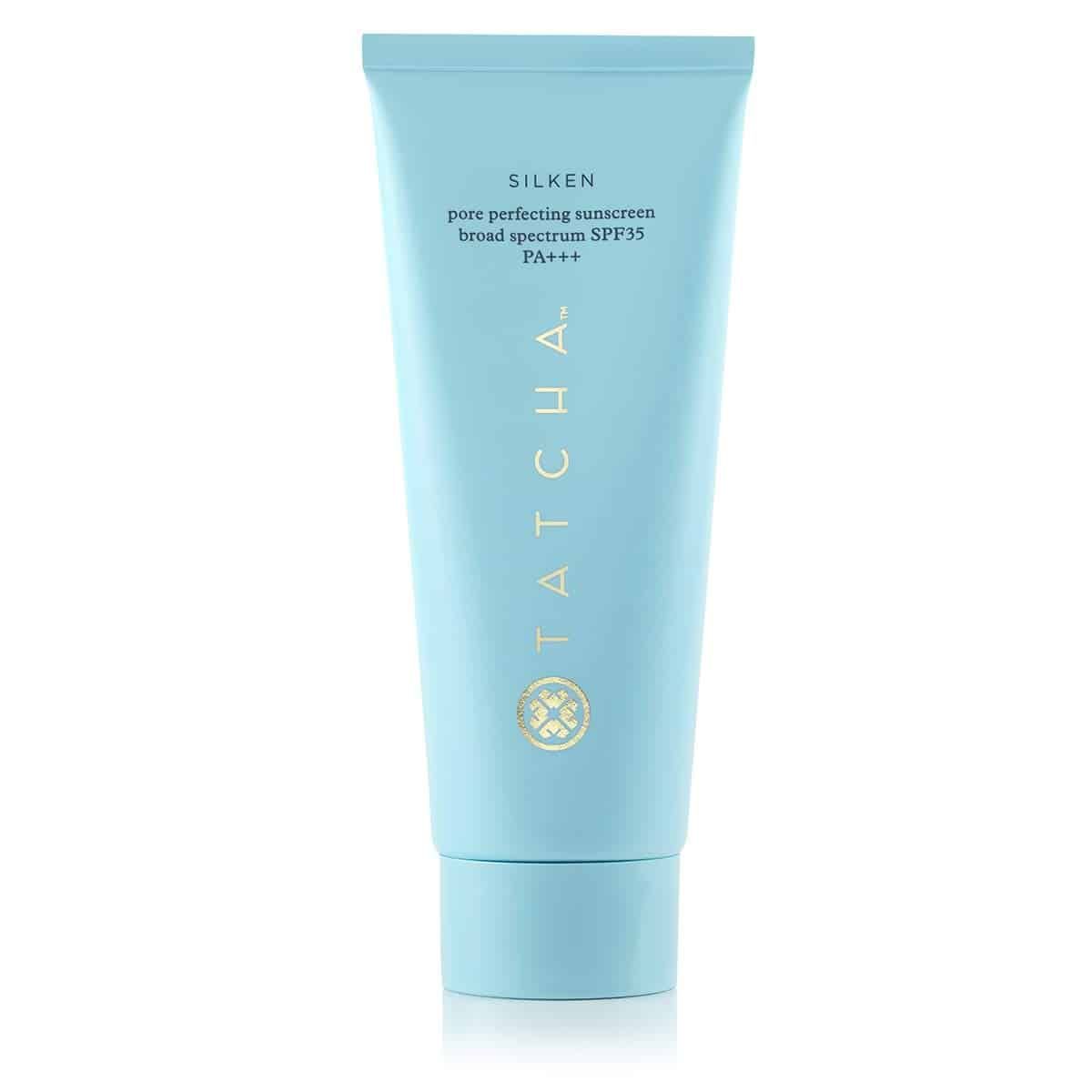
Tatcha
Silken Pore Perfecting Sunscreen Broad Spectrum SPF 35 PA+++
$65
Formulated with zinc oxide and titanium dioxide, this best-selling sunscreen is a wiz at protecting against UV rays and blue light. Additionally, the formula boasts Japanese wild rose and Hadasei-3, both of which work together to boost circulation and promote radiance. The result? Smooth, glowing skin that’s fully protected against aging aggressors.

Murad
City Skin Age Defense Broad Spectrum SPF 50 PA++++
$68
Zinc oxide and titanium dioxide work together to make this dimethicone-infused SPF a protective, smoothing powerhouse. What’s more, thanks to the addition of lutein, the mineral sunscreen is even more specifically made to address blue light.
The Takeaway
Sunshine is a wonderful thing that most people are grateful for. No matter the gratitude, however, protecting your skin against it is imperative. While applying SPF before a day spent in the sun is a fairly straightforward no brainer, many people struggle with the reality that SPF is just as necessary indoors—especially with society’s ever-growing obsession with screen time.
According to Green, UV damage and blue light damage are cumulative. This means that the more you’re exposed to it—whether during hours of outdoor excursions or days of indoor streaming—the more your skin is at risk. Because of this, wearing sunscreen indoors isn’t a debate. It’s a must.
The 15 Sunscreens That Actually Deliver on Their Promises

